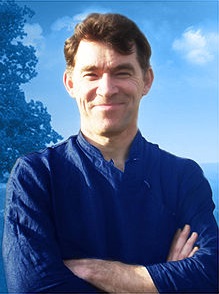Guest writer for Wake Up World
The sheer horror of the Russian invasion of Ukraine is so shocking that it’s difficult to process. It’s hard to believe that a leader — and his wider government — can be so malevolent and destructive. It seems like a return to an earlier, more brutal era of European history.
The war highlights the link between psychological disorders and political power. It was the British historian and politician Lord Action who coined the famous phrase, “power corrupts, and absolute power corrupts absolutely.” However, this phrase doesn’t take account of another factor: that power attracts people who are already corrupt (and who become even more corrupt once they attain power).
While some psychologists like to think in terms of specific disorders like psychopathy and narcissistic personality disorder, I prefer — like many psychologists nowadays — to think in terms of a “dark triad” of three personality traits that appear together: psychopathy, narcissism and Machiavellianism. This makes sense because these traits almost always overlap and are difficult to distinguish from one another.
Dark triad personalities crave power and find powerful positions easy to attain, because of their ruthlessness and manipulative skills. Since they lack empathy and conscience, they have no qualms against deceiving and exploiting other people in their rise to the top. Since they are often charismatic and charming, they often gain the support of ordinary people, who are impressed by their apparent confidence and decisiveness.
In my view, some of the suffering that has filled human history since the beginning of the 20th century has been caused by psychologically disordered dark triad leaders. Before the 20th century, inheritance-based systems of power restricted access to leadership roles. But once these social structures broke down — and particularly if they weren’t replaced by democratic systems — the most brutal and amoral individuals tended to rise to the most powerful positions. Some examples may include Stalin, Hitler, Mao Zedong, Mussolini, General Franco (of Spain) Pol Pot (of Cambodia), Saddam Hussein and Colonel Gaddafi. Towards the end of the twentieth century, most of Africa and South America was ruled by ruthless, amoral dictators who inflicted massive amounts of suffering on their own people.
Dark Triad Traits in Power
The political actions of dark triad leaders are simply an extension of their personality traits. For example, one of the traits of dark triad leaders is a constant desire to accumulate. They seem to feel a deep sense of inner lack which drives them to constantly try to collect more power, wealth, fame and success. This is what drives them to become leaders in the first place, and once they become leaders, they project this impulse onto their nations. As a result, they are nationalistic, obsessed with increasing their nation’s power and prestige. They promise a great future, where the nation can regain its prestige. They also usually hark back to mythical great past, when the nation once possessed power and prestige, which has now ebbed away. In their nationalist fervour, they see themselves in competition and conflict with other nations. They withdraw from international agreements, stubbornly insisting that they can prosper alone.
This is also why they often follow expansionist policies, to try to increase the nation’s (and by extension their own) power and wealth. They feel impelled to try to increase their nation’s territory, to conquer other nations and build an empire. This was the impulse which led Hitler to try to create his ‘Third Reich’ and it is impulse that lies behind Putin’s invasion of Ukraine.
Destructiveness
Dark triad leaders are authoritarian, as they have a limitless desire for power. They love to project an image of “toughness” and follow hardline policies, restricting people’s rights and increasing punishments. They often see themselves as guardians of a nation’s traditions, with a role to resist any progressive developments. However, despite their desire to appear as “strongmen,” dark triad leaders are usually highly insecure people who can’t endure criticism and dissent. Expressions of disapproval conflict with their grandiose self-image. As a result, they can’t endure people with different views, and pack their governments with sycophantic loyalists. Their sensitivity to slights is one of the reasons why they restrict freedom of the press, and fill media channels with their own propaganda. It is simply too much for them their fragile egos to tolerate a steady stream of commentary and criticism through different media channels.
There is a terrible destructiveness at the heart of dark triad leaders. Perhaps because they live in a state of complete disconnection, and feel a deep sense of lack, they feel a deep malevolence towards the world, and other human beings. It’s almost as if they are on a mission to cause as much as chaos and devastation as possible while in power — to kill people, to bomb countries, to destroy institutions, to damage the environment, or to roll back rights and regulations. Some of their actions appear gratuitous, purely for the sake of causing damage, like young children who trample on other children’s toys or knock down sandcastles just for the sake of it.
Pathocracy
Of course, such leaders don’t work alone. Once dark triad leaders gain power, moral and responsible people rapidly fall away, and other dark triad personalities collect around them. The government quickly becomes what the Polish psychologist Andrew Lobaczewski referred to as a “pathocracy” — a government made of individuals with personality disorders.
In my opinion, the above factors may help explain the actions of President Putin. It is impossible to understand his behaviour in any rational way because it is irrational. It is impossible to judge his actions by normal human standards because his actions are inhumane. All we can do is to try to protect ourselves against the pathology of political leaders, and to try to counter their malevolence with morality. Lobaczewski said that all pathocracies ultimately fail because the amorality and brutality of the ruling elite is not shared by the majority of the population. I hope that this holds true in this case.
Recommended articles by Steve Taylor, Ph.D:
- Hypnotic Healing: What is Responsible for the Placebo Effect and Hypnosis?
- Beyond Religion: Will Human Beings Ever Transcend the Need for Religions?
- The Transformational Effects of Bereavement
- Post-Traumatic Creativity: How Psychological Turmoil Can Unlock Our Creative Potential
- The Meaning of Life May Be Life Itself
- Spiritual Depression
- Do Psi Phenomena Exist? A Debate (Part One)
- Do Psi Phenomena Exist? The Debate Continues
- David Ditchfield’s Remarkable Near Death Experience
About the author:
Steve Taylor is a senior lecturer in Psychology at Leeds Beckett University, UK. His latest books in the US are The Calm Center and Back to Sanity: Healing the Madness of the Human Mind. He is also the author of The Fall, Waking From Sleep, and Out Of The Darkness. His books have been published in 19 languages. His research has appeared in The Journal of Transpersonal Psychology, The Journal of Consciousness Studies, The Transpersonal Psychology Review, The International Journal of Transpersonal Studies, as well as the popular media in the UK, including on BBC World TV, The Guardian, and The Independent.
Connect with Steve at StevenMTaylor.com.

If you've found value in our articles, we invite you to support the release of our brand-new book, "Gratitude Practices for Kids: A Practical Guide for Adults to Instill a Spirit of Appreciation and Positivity in the Next Generation."
"Gratitude Practices for Kids" brings together over 25 innovative and accessible practices designed to enhance gratitude in everyday life. This comprehensive guide is backed by 17 scientific studies, ensuring each concept is grounded in research, underscoring our commitment to nurturing growth, emotional intelligence, and positive interactions between adults and children.
We encourage you to opt for the paperback version to celebrate this new release. Dive into its fresh pages away from digital distractions, allowing you to immerse yourself in the transformative practices it offers.
Over recent years, Wake Up World has faced significant online censorship, which has impacted our financial ability to operate. Moving into book publishing represents a strategic step to secure the ongoing funds needed to continue our mission. By purchasing Gratitude for Kids, you help us keep our content free and accessible to everyone, avoiding needing a paywall. With over 8,500 articles published in the last 13 years, we remain dedicated to keeping our valuable content open to all.







